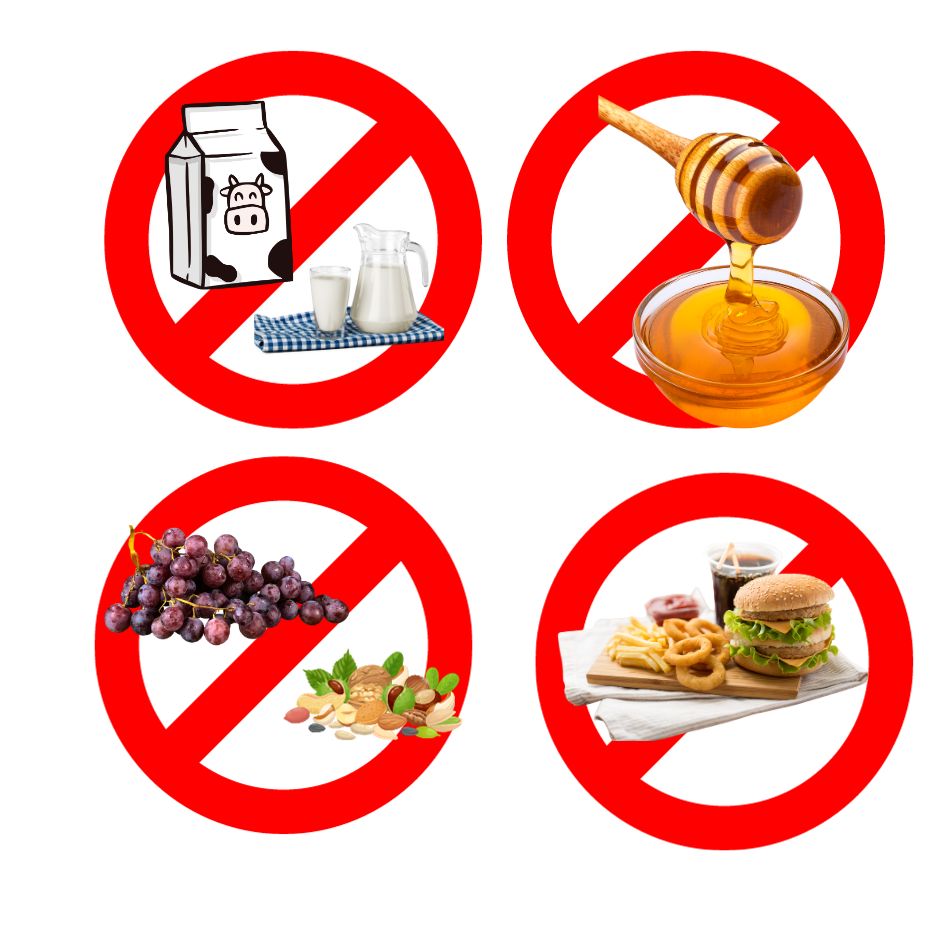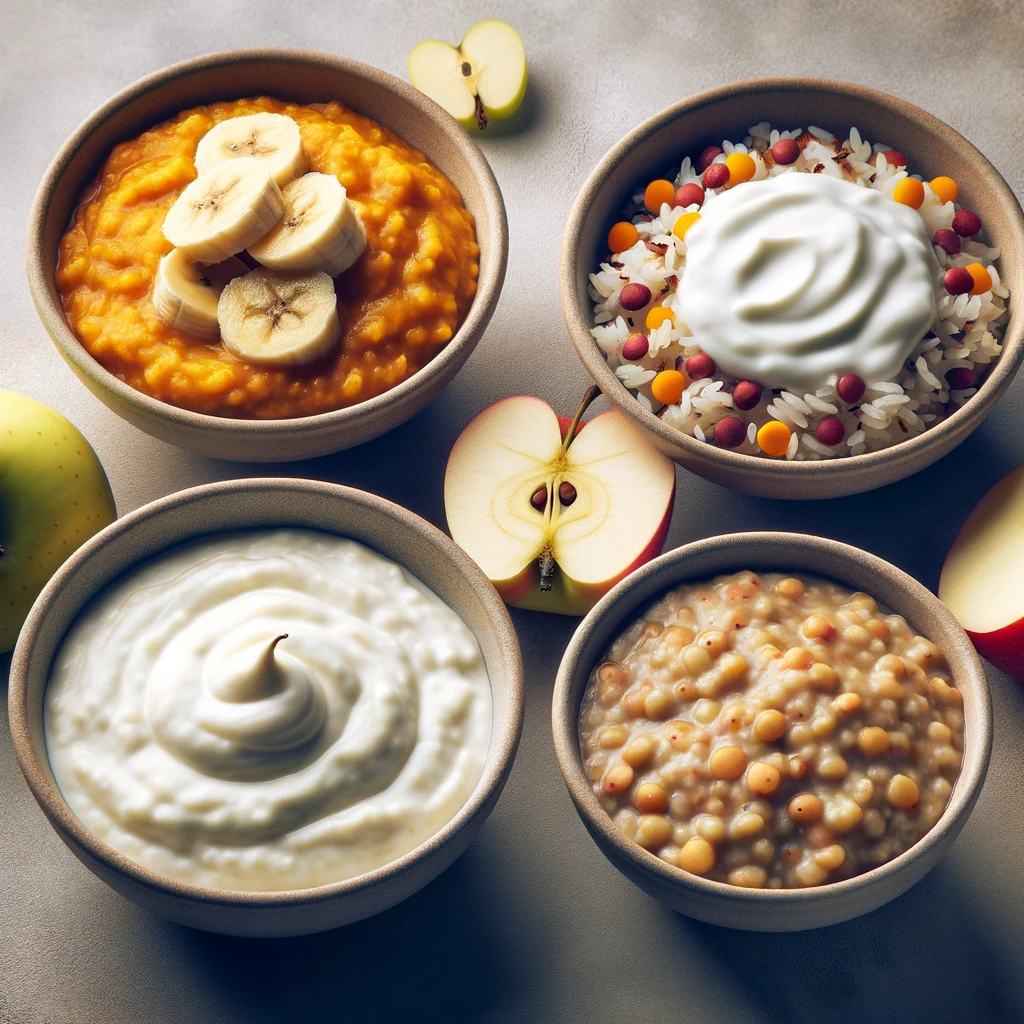Welcoming new life into your world brings joy, challenges, and many responsibilities. The most important of these is to ensure proper nutrition for your baby, which is essential for their growth and development. The early stages of a child’s life lay the foundation for their long-term health and well-being.
This comprehensive guide is especially for you who are new moms looking to navigate the often-overwhelming world of infant nutrition.
From understanding your baby’s nutritional needs to introducing them to their first solid food, this article will provide you with the essential knowledge and practical tips to ensure your little one grows up happily.
Infant Nutrition Guide
Understanding Infant Nutrition Requirements

In the first few months of life, the baby is nourished only by breastfeeding. Breastfeeding is recommended for all babies as it contains a balanced amount of fats, proteins and vitamins that are ideal for a newborn baby. It also contains antibodies that protect the newborn baby from all infections.
For mothers who cannot breastfeed, Infant formula milk is a nutritious alternative. Formula milk is usually prepared by mixing powder with water or liquid (with or without additional water) for bottle-feeding or cup-feeding. It is designed to mimic the benefits of breastfeeding.
Transition to solid food

At around 6 months of age, your baby will start showing signs of being ready for solid food. These signs include the developing ability to swallow food, interest in your food, and the ability to sit up with support. Solid food should be introduced gradually. Start with small amounts of pureed fruits, vegetables, and iron-fortified cereals and increase the variety and texture as your child becomes more comfortable eating them.
Safe and healthy first food

The ideal first foods for your baby are those that are easily digestible and less allergenic. These include vegetables like carrots, sweet potatoes and pumpkins and fruits like apples and bananas. Iron-fortified cereals are also a good choice, as iron is an important nutrient at this level. Foods should be smooth pureed to avoid choking and can be mixed with clean warm water or formula milk to achieve the desired consistency.
Foods to avoid

Some foods are risky for babies and should be avoided. Honey should not be given to children under one year of age as there is a risk of Infant botulism. Cow milk and alternatives like almond or soy milk should not be given until the child is one year old. Be careful of potential choking hazards such as whole grapes, nuts, and hard raw vegetables. Introduce new foods one by one, so that it can be easily monitored whether the newborn baby is allergic to any food or not.
Infant botulism is a rare but serious medical condition caused by the bacteria Clostridium botulinum. These bacteria can be found in soil, dust, and certain foods like Honey. In infant botulism, the bacteria produce a toxin inside the baby's intestines after being ingested, typically through spores in contaminated food or other substances. The reason younger infants are particularly susceptible is that their digestive systems are not yet fully developed, making it easier for the C. botulinum spores to grow and produce toxins. Preventive measures includes not giving honey to infants under one year and being cautious with home-canned foods and packaged foods. Additionally, practicing good hygiene and keeping the infant's environment clean can help minimize the risk.
Source: General information on botulism, including infant botulism
Establishing healthy eating habits

Creating a positive eating environment is important for your child’s relationship with food. Encourage exploration and let your child get dirty while eating. Don’t force-feed them. Provide a variety of foods and introduce them to different tastes and textures to promote a balanced diet. Maintaining regular mealtimes and eating with family can develop Healthy Eating Habits. Remember, your baby’s eating skills will develop over time, so be patient and stay consistent.
8 Wholesome Foods for Babies in Their First Year

While introducing solid foods to a 6-month-old baby, It is important to start with easily digestible and nutritious options. There are a variety of suitable foods for infants. Here are some suggestions:
1. Rice Water (Chawal Ka Paani):
A very light and easily digestible first food. It’s simply the water in which rice has been boiled.
2. Dal Water (Dal Ka Paani):
Water in which lentils (moong dal, toor dal, etc.) have been boiled. This is a good source of protein.
3. Mashed Banana:
Bananas are rich in potassium and fibre. They are easy to mash and gentle on the baby’s stomach.
4. Boiled and Mashed Vegetables:
Vegetables like carrots, sweet potatoes, and pumpkin can be boiled and mashed. These are rich in vitamins and minerals.
5. Khichdi:
A mix of rice and lentils, cooked to a soft, mushy consistency. You can start with a plain khichdi and gradually add vegetables as the baby gets used to solid foods.
6. Apple Puree:
Steamed and pureed apples are another good option. They provide fibre and vitamin C.
7. Ragi Porridge:
Ragi (finger millet) is very nutritious and a great source of calcium and iron. Ragi porridge can be made with water or milk and is suitable for babies.
8. Curd or Yogurt:
Provides good bacteria that help in digestion. Ensure it’s not too sour for the baby.
Remember, when introducing new foods, it’s crucial to follow the “three-day rule” – introduce one new food and continue the same for three days to monitor for any allergic reactions. Start with a very small quantity and gradually increase it. Also, continue breastfeeding or formula feeding as it remains a significant part of the baby’s diet at this age.
Consulting with a paediatrician before introducing solid foods is always advisable to ensure these options are suitable for your baby’s specific health needs and developmental stage.
Conclusion
Your infant’s nutrition in the first year lays the foundation for a lifetime of healthy eating. By providing a balanced diet and establishing positive eating habits, you are setting your child up for a healthy future.
For more information on infant nutrition, consult your paediatrician and visit reputable websites such as the World Health Organization (WHO).


The Information You Have provided here is really valuable for New Mothers.
Thank you Very Much 🙂